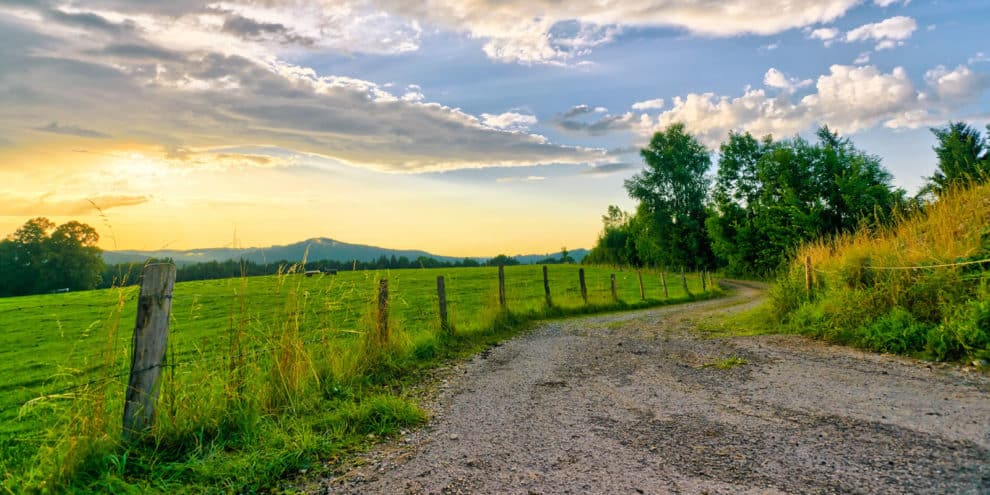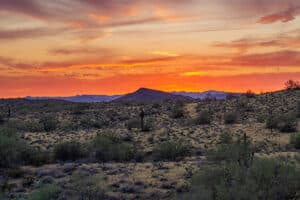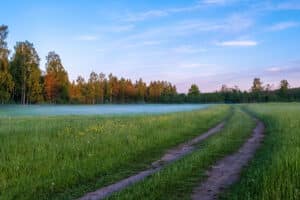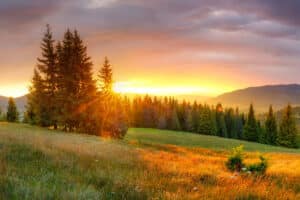Many people ask what the consequence is when they have an interest in buying land for sale that does not touch on a public road. In other words, is it a problem when the only access to a property from the nearest public road (that is, a road maintained by federal, state or county government) is a private road or trail that crosses an adjoining landowner’s property. Or, there is no road to the property at all.
In general, access falls into three legal categories: one is public access, one is undeeded access, and one is deeded access.
Public access is the least complicated. The property either touches a government maintained road or it doesn’t. If it does, you don’t have to cross anyone else’s property to get to your own.
The other two are more complicated. But even undeeded may not actually be a problem depending on the intended use.
What does undeeded mean?
Property with no direct access to a public road is commonly referred to as “landlocked” property, and it must be accessed by a road or trail that crosses a neighboring property.
Undeeded access means that your use of a road or trail across adjoining land to get to your property is not governed by a written document (or, there is no road at all). It’s the road people “have always used” to get to the property, but a written agreement was never negotiated with the neighbor.
When access is deeded, there is a written agreement with the adjoining landowners over whom the road traverses that governs use of the road. It’s typically recorded in the court house.
Does it matter?
Our experience is that for some uses of the land, undeeded access is usually not a problem since the use of the road is often uncontested and goes back several generations. But from time to time these situations can be problematic since the adjoining landowner is not bound by any written agreement.
The state of Alabama has a law that says you can’t “land lock” your neighbor – that is, deny them physical access. But this does not mean they have to give you a written easement, nor does it mean they have to let you string power lines or run water lines across their property.
Undeeded access can be a problem, however, when borrowed capital is used to buy land. Lenders often will not lend money when the intended security interest is landlocked.
Depends on intended use
If you are looking at Alabama land for sale that does not touch on a public road, then how you intend to use the property is key to understanding the issue.
For example, if you intend to build a house and will need water and utilities, having deeded access will be critical. You’ll have to negotiate these things with your neighbor.
On the other hand, if you are buying hunting land for sale or want to grow timber and go 4-wheeling with the kids, our experience is that there’s minimal risk you’ll have a problem with a neighbor when the access road is well established and its’ use has not been a point of contention with the neighbor.
In general, the more landowners who use an undeeded access road to get to their property, the less likely there will be trouble with the adjoining landowner.
How to obtain a deeded access
If having deeded access is critical to your purchase, the best way to proceed is to negotiate a contract with the seller of the landlocked property that contains a contingency for successfully negotiating a written access agreement with the adjoining landowners. This way, if you can’t resolve the issue to your satisfaction, you’ll get your deposit back. And meanwhile, you have the property tied up so it can’t sell before you have a chance to settle the issue. It may cost you some money to get the deeded access (payment to adjoining landowner, survey cost, attorney fees, recording fees) but it is money well spent.
This preceding article is an excerpt from Tom Brickman’s e-book, “Buying Rural Land: Tips and How-to’s”, a collection of well-written, quick reads to help you find a rural property you’ll love and simplify getting it done. Download the e-book and learn from a seasoned pro with 40 years of experience.
This content may not be used or reproduced in any manner whatsoever, in part or in whole, without written permission of LANDTHINK. Use of this content without permission is a violation of federal copyright law. The articles, posts, comments, opinions and information provided by LANDTHINK are for informational and research purposes only and DOES NOT substitute or coincide with the advice of an attorney, accountant, real estate broker or any other licensed real estate professional. LANDTHINK strongly advises visitors and readers to seek their own professional guidance and advice related to buying, investing in or selling real estate.










Being the Off-Grid advocate I am, I would just like to add that with the price of Solar as low as it has become, adding to the fact that “Land Locked” property is usually a good deal financially, I highly recommend looking at them as a possible home site.